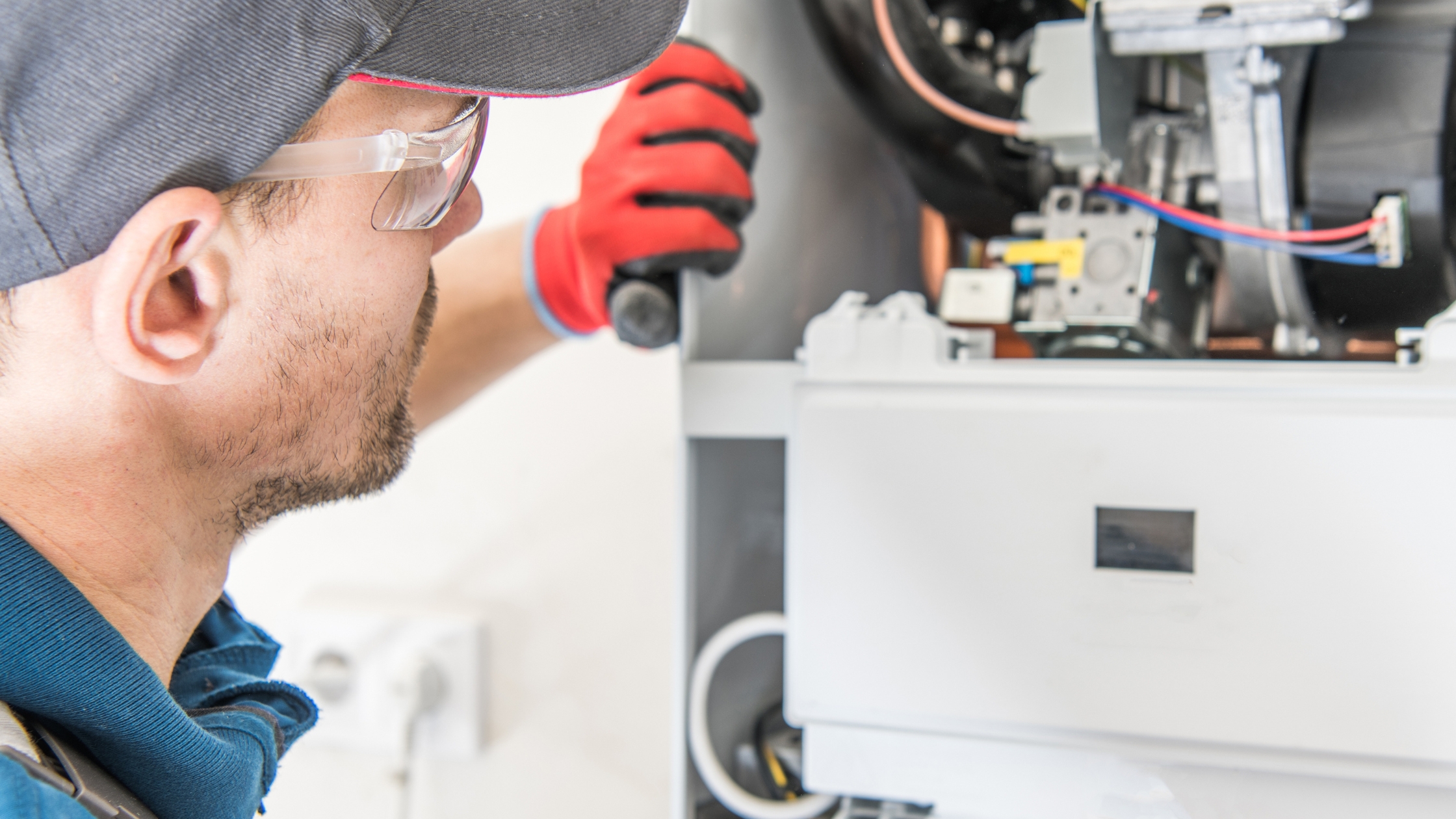Water Heater Repair vs. Water Heater Replacement: Making the Right Choice

Strong 8k brings an ultra-HD IPTV experience to your living room and your pocket.
Your Water heater repair plays a critical role in your home, providing hot water for showers, dishwashing, laundry, and more. When it starts to malfunction, homeowners face a crucial decision—whether to repair the existing unit or replace it altogether. This guide will explore the factors involved in making this choice, helping you decide what's best for your home and budget.
Signs Your Water Heater Needs Attention
Before diving into repair or replacement, it's essential to identify the common signs indicating that your water heater might need professional attention. Here are some symptoms to watch for:
Inconsistent Hot Water: If your water temperature is fluctuating or you’re running out of hot water quicker than usual, it may indicate a heating element or thermostat issue.
Strange Noises: Rumbling, popping, or hissing sounds from your water heater suggest sediment buildup or failing components.
Water Discoloration: Rusty or cloudy water is a sign of corrosion within the tank. This could indicate a failing anode rod or the need for a tank replacement if the corrosion is severe.
Leaks Around the Tank: Any water pooling near your heater should not be ignored. It could signal a leaking valve or a crack in the tank.
Age of the Unit: Most water heaters last between 8-12 years. If your unit is reaching or exceeding this lifespan, replacement might be more cost-effective than repair.
Pros and Cons of Water Heater Repair
Benefits of Repair
Repairing your water heater can be a budget-friendly solution when dealing with minor issues. Here are some of the advantages:
Cost-Effective: Repairs are often cheaper than a full replacement, especially if the problem is minor.
Less Disruption: A quick repair can often be completed in a few hours, minimizing disruption to your home life.
Extended Lifespan: Addressing small problems can prolong the life of your existing water heater.
Drawbacks of Repair
However, there are also limitations to consider:
Temporary Fix: A repair might only delay the inevitable, leading to more frequent fixes in the future.
Increasing Costs: Older units may require more frequent repairs, which can add up over time.
Energy Efficiency: Older models tend to be less energy-efficient, and repairing them won’t improve their efficiency.
When to Choose Water Heater Replacement
Sometimes, replacing the water heater is the more practical choice. Here's why:
Benefits of Replacement
Improved Efficiency: New water heaters are significantly more energy-efficient, leading to lower utility bills over time.
Peace of Mind: A new unit typically comes with a warranty, reducing worries about unexpected breakdowns.
Better Performance: Modern water heaters can provide a more reliable supply of hot water without fluctuations.
Drawbacks of Replacement
Higher Initial Cost: Replacing a water heater is generally more expensive upfront than repairing it.
Installation Time: A new installation can take more time and might require plumbing modifications.
Types of Water Heaters to Consider for Replacement
If you decide that replacement is the best option, understanding the different types of water heaters available can help you make an informed decision:
Conventional Storage Water Heaters:
How They Work: Use a tank to heat and store water. Available in various sizes, typically ranging from 20 to 80 gallons.
Pros: Affordable initial cost, suitable for large households.
Cons: Can run out of hot water if demand exceeds the tank capacity.
Tankless Water Heaters:
How They Work: Provide hot water on demand by heating water directly as it flows through the unit.
Pros: Energy-efficient, endless hot water supply, saves space.
Cons: Higher upfront costs, may require a larger gas line or electrical upgrade.
Heat Pump Water Heaters:
How They Work: Use electricity to move heat from the air or ground to heat the water.
Pros: Very energy-efficient, environmentally friendly.
Cons: Higher installation costs, may not work well in colder climates.
Solar Water Heaters:
How They Work: Use solar panels to absorb sunlight, heating the water in a storage tank.
Pros: Eco-friendly, lower energy costs over time.
Cons: High initial investment, weather-dependent efficiency.
Condensing Water Heaters:
How They Work: Use heat from exhaust gases to heat water.
Pros: Energy-efficient for homes that use natural gas as a primary energy source.
Cons: Limited models available, may require specific venting.
Factors to Consider When Deciding Between Repair and Replacement
To make an informed decision, consider these factors:
1. Cost Analysis
Repair Cost: If the repair cost is less than 50% of the replacement cost and your water heater is relatively new, repair might be the better option.
Replacement Cost: Consider not only the unit cost but also installation fees, potential plumbing adjustments, and new venting requirements.
2. Age of the Water Heater
Units nearing or past the 10-year mark may not be worth repairing, as they are likely to have more issues soon.
3. Energy Efficiency
Older models can consume more energy. A newer, energy-efficient unit may save you money in the long run, even if the initial cost is higher.
4. Frequency of Repairs
If your water heater has needed multiple repairs in recent years, replacement can save you from the headache of frequent service calls.
5. Household Needs
Evaluate your household’s hot water demands. If your needs have increased, a larger or more efficient model might be necessary.
DIY vs. Professional Service: When to Call a Technician
Some water heater issues can be fixed with basic DIY skills, but there are scenarios where professional help is necessary:
DIY Fixes:
Relighting the Pilot Light: If your gas water heater’s pilot light goes out, it can usually be relit without professional help.
Flushing the Tank: Draining and flushing sediment from the tank annually can improve performance.
Replacing the Thermostat: Simple thermostat replacement can sometimes restore proper heating.
Professional Services:
Leaks: Any signs of leakage around the tank should be handled by a professional, as it may involve replacing seals, valves, or the tank itself.
Electrical Issues: If an electric water heater has tripped circuits or isn’t heating, call a professional.
Gas Line Issues: For gas water heaters, any suspected gas leak requires immediate professional attention.
Tips for Extending the Life of Your Water Heater
Whether you choose to repair or replace, regular maintenance can extend the life of your water heater and ensure optimal performance:
Schedule Annual Maintenance: Professional inspections can identify minor issues before they turn into major problems.
Flush the Tank: Sediment buildup is a common issue. Draining and flushing the tank annually can prevent corrosion and improve efficiency.
Check the Anode Rod: This sacrificial rod prevents the tank from rusting. Inspect it every 2-3 years and replace it if it’s heavily corroded.
Insulate the Tank: Adding a water heater blanket can help maintain the water temperature, reducing energy consumption.
Conclusion: Making the Right Choice for Your Home
Deciding between repairing or replacing a water heater depends on multiple factors, including cost, efficiency, and your household's specific needs. If the unit is relatively new and the problem is minor, repairs can offer a quick and budget-friendly solution. However, if the heater is aging, energy-inefficient, or requiring frequent repairs, investing in a new model could save money and energy in the long term.
Note: IndiBlogHub features both user-submitted and editorial content. We do not verify third-party contributions. Read our Disclaimer and Privacy Policyfor details.


